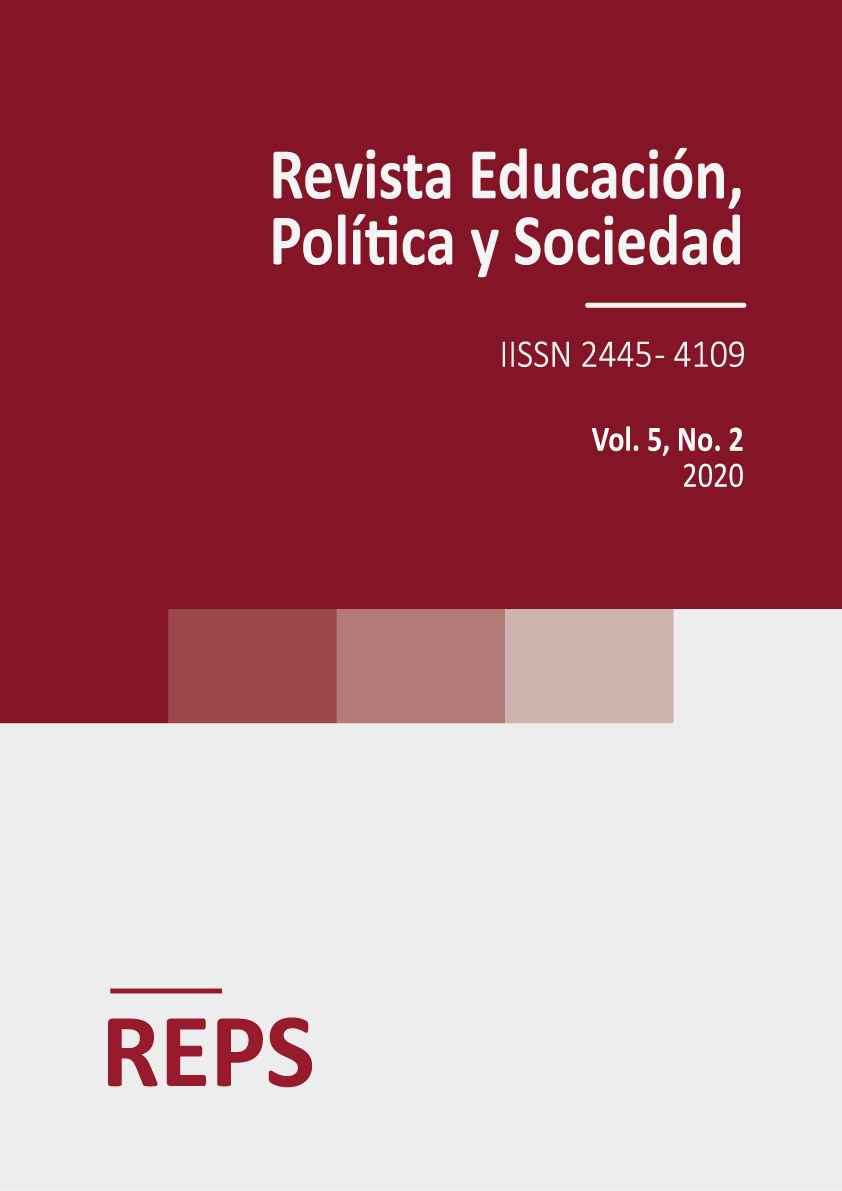Keywords:
Abya Yala, epistemologies, criticism, social order, decolonial pedagogy
This work is licensed under a Creative Commons Attribution-NonCommercial 4.0 International License.
Abstract
This new section of the journal aims to be a space for the criticism of "capitalism-colonialism-patriarchy" in the framework of the relations between education and the social order. This is the framework of the interview with Catherine Walsh whose objective is to reflect on this social order and education-pedagogy from a decolonial perspective. It hopes to be a contribution toward the cracking of the dominant order and the construction of a different social-communitarian praxis, thought with and from Abya Yala. Catherine Walsh is an intellectual-militant, pedagogically committed and involved for many years in the processes and struggles for justice and social and decolonial transformation, first in the United States and, since 1995, in Ecuador and Abya Yala/Latin America. She is professor and Director of the Doctorate in Latin American Cultural Studies at the Universidad Andina Simón Bolívar-Ecuador.
Downloads
References
Alexander, M. Jacqui (2006). Pedagogies of Crossing: Meditations on Feminism, Sexual Politics, Memory, and the Sacred. Durham: Duke University Press.
Castro-Gómez, S. (2000). Ciencias sociales, violencia epistémica y el problema de la "invención del otro". En E. Lander (Comp.), La colonialidad del saber: eurocentrismo y ciencias sociales. Perspectivas latinoamericanas (pp. 88-98). Buenos Aires: CLACSO.
Dussel, E. (1996). De la ciencia a la filosofía de la liberación. Buenos Aires: CLACSO.
Esteva, G. (2014) Nuevas formas de revolución. Notas para aprender de las luchas del EZLN y de la APPO. Oaxaca: El Rebozo.
Esteva, G. (2015). Enclosing the Enclosers. Autonomous Experiences from the Grassroots - Beyond Development, Globalization and Posmodernity. En F. Luisetti, J. Pickles y W. Kaiser (Eds.), The Anomie of the Earth, Philosophy, Politics, and Autonomy in Europe and the Americas (pp. 71-92). Durham: Duke University Press.
Freire, P. (1970/1985). Pedagogía del oprimido. Buenos Aires: Siglo Veintiuno Editores.
Garzón, Mª. T. (2014). Proyectos corporales. Errores subversivos: hacia una performatividad decolonial del silencio. En Y. Espinosa, D. Gómez y K. Ochoa (Eds.), Tejiendo de otro modo: feminismos, epistemología y apuestas descoloniales en Abya Yala (pp. 223-236). Popayán, Colombia: Editorial Universidad de Cauca.
Gutiérrez Aguilar, R. (Coord.) (2018). Comunalidad, tramas comunitarias y producción de lo común. Debates contemporáneos desde América Latina. Oaxaca, México: Colectivo Editorial Pez en el Árbol / Editorial Casa de las Preguntas.
Lander, E. (2000). Ciencias sociales: saberes coloniales y eurocéntrico. En E. Lander (Comp.), La colonialidad del saber: eurocentrismo y ciencias sociales. Perspectivas latinoamericanas (pp. 1-23). Buenos Aires: CLACSO.
Lozano, B. R. (2016). Tejiendo con retazos de memorias insurgencias epistémicas de mujeres negras/afrocolombianas. Aportes a un feminismo decolonial (Tesis doctoral inédita). Quito: Universidad Andina Simón Bolívar.
Quijano, A. (1992). Colonialidad y Modernidad/Racionalidad. Perú Indígena, 13 (29), 11-20.
Quijano, A. (2000). Colonialidad del poder, eurocentrismo y América Latina. En E. Lander (Comp.), La colonialidad del saber: eurocentrismo y ciencias sociales. Perspectivas latinoamericanas (pp. 122-152). Buenos Aires: CLACSO.
Quintero Weir, J. Á. (2019). La emergencia del Nosotros, Pueblos en Camino. Disponible en https://pueblosencamino.org/?p=6988
Walsh, C. (1991). Pedagogy and the Struggle for Voice: Issues of Language, Power and Schooling for Puerto Ricans, Westport, CT: Bergin and Garvey. Ontario, Canadá: OISE Press.
Walsh, C. (1994). El Desarrollo Sociopolítico de la Educación Intercultural Bilingüe en el Ecuador: Un Análisis de Perspectivas y Posiciones. Pueblos Indígenas y Educación, 31-32, 99-164. Quito: Abya Yala.
Walsh, C. (Ed.) (1996). Education Reform and Social Change: Multicultural Voices, Struggles, and Visions. Mahwah, NJ: Lawrence Erlbaum Associates.
Walsh, C. (2005). Interculturalidad, conocimientos y decolonialidad. Signo y pensamiento, 24(46), 39-50.
Walsh, C. (2008). Interculturalidad, plurinacionalidad y decolonialidad: las insurgencias político-epistémicas de refundar el Estado. Tabula Rasa, 9, 131-152.
Walsh, C. (2009). Interculturalidad, Estado, Sociedad: Luchas (de)coloniales de nuestra época. Quito: Universidad Andina Simón Bolívar / Ediciones Abya Yala.
Walsh, C. (2010). Estudios (inter) culturales en clave de-colonial. Tabula Rasa, 12, 209-227.
Walsh, C. (Ed.) (2013). Pedagogías decoloniales. Prácticas insurgentes de resistir, (re)existir y (re)vivir. Tomo I. Quito: Abya Yala.
Walsh, C. (2015). ¿Interculturalidad? Fantasmas, fantasías y funcionalismos. En F. Balseca y C. Montúfar (Eds), Ecuador. Desafíos para el presente y el futuro (pp. 269-282). Quito: Universidad Andina Simón Bolívar y Ediciones de la Tierra.
Walsh, C. (Ed.) (2017). Pedagogías decoloniales. Prácticas insurgentes de resistir, (re)existir y (re)vivir. Tomo II. Quito: Abya Yala.
Walsh, C. (2017). Entretejiendo lo pedagógico y lo decolonial: Luchas, caminos y siembras de reflexión-acción para resistir, (re)existir y (re)vivir. Alter/Nativas.
Walsh, C. (2020). Existence (De)schooled. Lápiz, 5. Latin American Philosophy of Education Society. Disponible en https://bit.ly/2WhkecD
Zapata Olivella, M. (1997). La rebelión de los genes. El mestizaje americano en la sociedad futura. Bogotá: Altamir ediciones.

